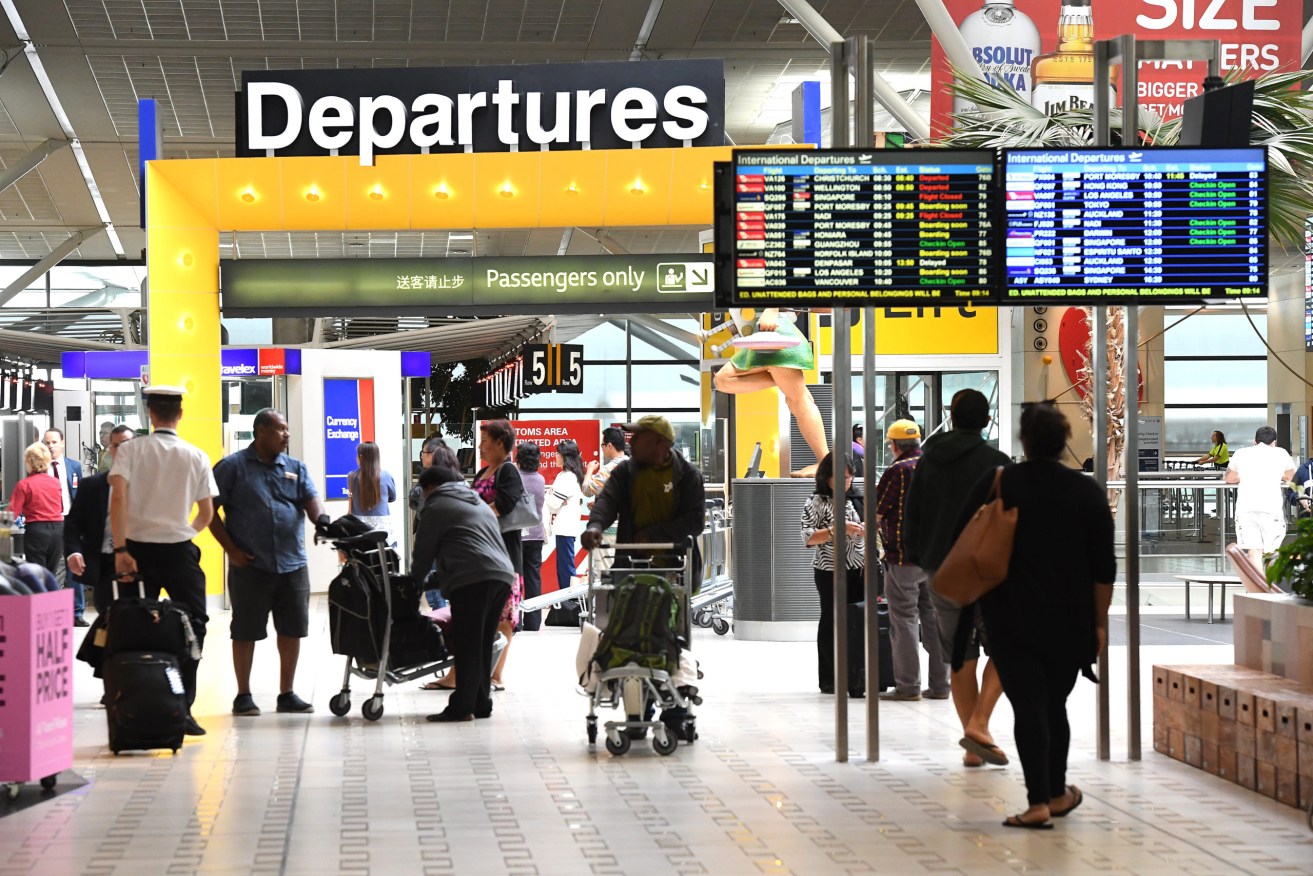After 1.3m grounded Aussies let their passports expire, now they’re rushing to renew
The number of Australians applying for passports has doubled in the past few months with plans for border re-openings bringing renewed dreams of overseas travel.

Analysts said lack of staff was restricting tourism volume growth which was also being impacted by higher fuel costs pushing up air fares (Photo: Dave Hunt/AAP PHOTOS)
The demand for passports in November is set to eclipse all other months since the Covid-19 pandemic began in early 2020.
It follows a period during the depths of the pandemic that saw more than 1.3 million would-be travellers surrendering their passports rather than pay for a document that could not be used.
News of the new Omicron variant may put the brakes on some overseas travel aspirations but officials say it is too early yet to know the full impact of the latest iteration of the virus as Governments around the world scramble to respond.
According to the Department of Foreign Affairs and Trade, about 1.3 million Australians let their passports expire during the pandemic, a response to the fact that Australia’s international borders had been slammed shut.
But with news of border reopenings and relaxed quarantine regimes, as vaccination rates rise, people are deciding to apply for passports ready for resumed travel.
DFAT says that since August the demand for passports has grown from less than 15,000 applications per week to more than 30,000 applications per week, compared to less 10,000 applications per week in the August to November 2020 period.
During the past financial year, DFAT referred 16,196 passport applications to face comparison experts for specialist manual assessment.
From these, three cases of passport identity fraud were detected using facial recognition technology and another six potential cases of passport identity fraud were detected by other means.
DFAT also refused to process 48 passport applications on suspicion of fraud or dishonesty in the application and referred them to the Director of Public Prosecutions. One was prosecuted and two more were under assessment.
The DFAT annual report notes that during the year, the Foreign Affairs Minister, cancelled the passports of 43 reportable child sex offenders and that state and territory police requested that a further 260 offenders without passports be refused a passport if they applied.
This compares to the previous year, when 129 sex offender passports were cancelled and 275 refusal requests were made.
DFAT’s latest annual report also provides insight into the impact of Covid-19 on its operations, which included approving the applications of 4569 vulnerable Australians stuck overseas.
Under the Special Overseas Hardship Fund, loans and grants were approved to cover emergency living costs and part of the cost of return flights.
But it notes that fewer Australians travelling overseas did not lead to a significant fall in the consular cases dealt with around the world. The figure remained steady at about 200,000 per year.
One thing that did happen was that the number of Australians arrested and locked up overseas was slashed in half, from 1443 the previous year to 755 in the past financial year. This was due to the low numbers of Australians travelling.
The number of Australians in overseas jails was constant and has been for the past five years. Last year there were 347 Australians locked up abroad.












